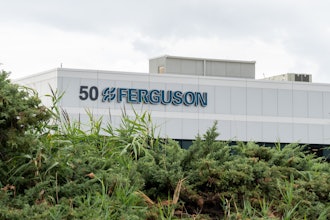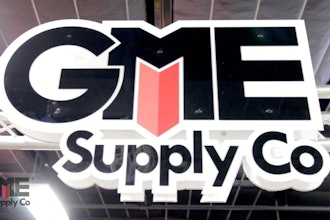CEDAR RAPIDS, Iowa (AP) — Employers staffing for the economic recovery are having unexpected difficulty filling temp positions, and they blame extensions in unemployment benefits.
"I offered somebody a job just yesterday, and they turned it down," said Tracie Gutknecht, area manager for Labor Finders in Cedar Rapids. "Their unemployment had just been extended, and they said that if they took the job, they would lose that."
Demand for temps began to grow late last year and has accelerated this spring, temporary employment agencies say. Companies often rely on temps heavily in the early stages of a recovery because of uncertainty about how strong the recovery will be and whether it will be sustained.
Gutknecht was looking for about 200 applicants for 85 positions, including jobs with a start up ethanol factory, an established food manufacturer and a warehouse supplying parts for an area manufacturer.
The companies are unnamed because of confidentiality agreements with temporary employment agencies.
Some were full-time, longer term jobs that could lead to permanent positions. Others were short-term jobs that involved only 24 hours of work each week.
With the extensions provided by Congress, 73 weeks is currently the maximum an Iowan can receive unemployment, said Iowa Workforce Development spokeswoman Kerry Koonce. That compares with 26 weeks in pre-recession times.
Job-seekers say it isn't just a question of taking the unemployment compensation or the temp job, however.
James Jenkins of Cedar Rapids, an elementary music teacher, has been trying for several years to find a permanent full-time job since being laid off. He's starting a two-week temporary position this week, grading tests for an educational assessment company, after exhausting his unemployment benefits a few months ago.
Jenkins said most of the temp jobs don't offer full-time hours or benefits. Because of the high unemployment rate, he said, many companies pay little more than minimum wage for temps.
"It's a tough job market," said Jenkins.
At a CEO roundtable last week for executives in Washington County, the difficulty of hiring because of unemployment benefit extensions was a major topic of conversation, Economic Development Director Ed Raber said.
"We even heard this from a long-established manufacturer, which pays good wages," Raber said. "They were not using temps."
A study released last month found that extended unemployment benefits have had a relatively modest overall effect on unemployment rates. If unemployment compensation had not been extended, the national unemployment rate would have been 9.6 percent at the end of 2009 rather than 10 percent, according to the study by Rob Valletta and Katherine Kuang of the Federal Reserve Bank of San Francisco.
Iowa Workforce Development's Koonce is skeptical that the extensions are the reason temp jobs are hard to fill. Koonce said the maximum amount an Iowan can receive on unemployment is $385 per week.
"It's not meant to be a 100 percent wage reimbursement," Koonce said.
Still, said Mike Cambridge of Cambridge TEMPositions in Cedar Rapids, it's hard to lure workers who previously made more than $12 per hour.
"At $10 per hour or less, there are probably more (temp) jobs than people who want to work," Cambridge said.
Children are a big issue for many single parents, Cambridge said. After day care expenses are factored, they find they can make more money on unemployment than by taking a job.
USA Staffing isn't having difficulty hiring, though. Iowa District Manager Dennis Ingle said it's because the agency has more temp jobs that pay well.
One area that Ingle hasn't seen improve, however, is "temp-to-hire" positions, in which the employer agrees to hire the temp after a period of time if he or she meets expectations.
"Two years ago, 75 percent of our business was temp-to-hire," Ingle said. "We haven't seen that come back. Employers don't know if they'll have the same demand three years from now. They're taking a wait-and-see approach."


















